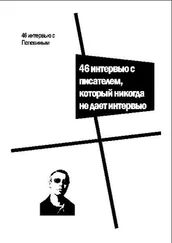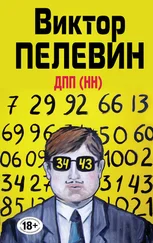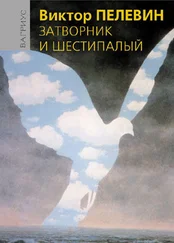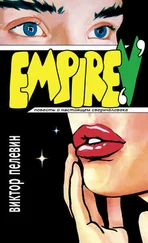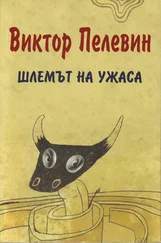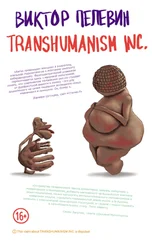Виктор Пелевин - Buddha's Little Finger
Здесь есть возможность читать онлайн «Виктор Пелевин - Buddha's Little Finger» весь текст электронной книги совершенно бесплатно (целиком полную версию без сокращений). В некоторых случаях можно слушать аудио, скачать через торрент в формате fb2 и присутствует краткое содержание. Жанр: Современная проза, на английском языке. Описание произведения, (предисловие) а так же отзывы посетителей доступны на портале библиотеки ЛибКат.
- Название:Buddha's Little Finger
- Автор:
- Жанр:
- Год:неизвестен
- ISBN:нет данных
- Рейтинг книги:5 / 5. Голосов: 1
-
Избранное:Добавить в избранное
- Отзывы:
-
Ваша оценка:
- 100
- 1
- 2
- 3
- 4
- 5
Buddha's Little Finger: краткое содержание, описание и аннотация
Предлагаем к чтению аннотацию, описание, краткое содержание или предисловие (зависит от того, что написал сам автор книги «Buddha's Little Finger»). Если вы не нашли необходимую информацию о книге — напишите в комментариях, мы постараемся отыскать её.
Buddha's Little Finger — читать онлайн бесплатно полную книгу (весь текст) целиком
Ниже представлен текст книги, разбитый по страницам. Система сохранения места последней прочитанной страницы, позволяет с удобством читать онлайн бесплатно книгу «Buddha's Little Finger», без необходимости каждый раз заново искать на чём Вы остановились. Поставьте закладку, и сможете в любой момент перейти на страницу, на которой закончили чтение.
Интервал:
Закладка:
Thankfully, however, the door opened at this point and two men in white coats entered the room. I remembered that one of them was called Zherbunov, the other Barbolin. Zherbunov held a large hourglass in his hand, while Barbolin was carrying an immense heap of linen.
‘Out we get.’ said Zherbunov merrily, waving the timer in front of him.
They wiped down each of us in turn with huge fluffy sheets and helped us to put on identical pyjamas with horizontal stripes, which immediately lent events a certain naval flavour. Then they led us out through the door and down a long corridor, which also seemed somehow familiar - not the corridor itself, however, but the vaguely medical smell that hung in its air.
‘Tell me.’ I said quietly to Zherbunov, who was walking along just behind me, ‘why am I here?’
He opened his eyes wide in surprise.
‘As if you didn’t know,’ he said.
‘No,’ I said, ‘I am prepared to admit that I am not well, but what was the cause? Have I been here for a long time? And what specific acts am I actually charged with?’
‘Ask Timur Timurovich all your questions,’ said Zherbunov. ‘We’ve no time for idle chatter.’
I felt extremely depressed. We stopped at a white door bearing the number ‘7’. Barbolin opened it with a key and they allowed us through into a rather large room with four beds standing along the wall. The beds were made, there was a table by the barred window and standing by the wall was something that looked like a combination of a couch and a low armchair, with elastic loops for the sitter’s hands and feet. Despite these loops, there was nothing at all menacing about the contrivance. Its appearance was emphatically medical, and the absurd phrase ‘urological chair’ even came into my mind.
‘I beg your pardon.’ I said, turning to Volodin, ‘but is this the garrotte of which you spoke?’
Volodin gave me a brief glance and nodded towards the door. I turned to look. Timur Timurovich was standing in the doorway.
‘Garrotte?’ he asked, raising one eyebrow. ‘The garrotte, if I am not mistaken, is a chair on which people were executed by strangulation in medieval Spain, is that not so? What a dark and depressive perception of surrounding reality! Of course you, Pyotr, had your injection this morning, so it’s nothing to be surprised at. But you, Vladimir? I am astonished, astonished.’
As he rattled off this speech, Timur Timurovich gestured for Zherbunov and Barbolin to leave and walked to the centre of the room.
‘It’s not a garrotte at all.’ he said. ‘It’s a perfectly ordinary couch for our group therapy sessions. You, Pyotr, have already attended one of these sessions, immediately after you returned to us from the isolation ward, but you were in rather poor condition, so it’s unlikely that you can remember anything.’
‘That is not the case,’ I said, ‘I do remember something.’
‘All the better. Then let me briefly remind you what takes place here. The method which I have developed and employ could be provisionally classified as turbo-Jungian. You are, of course, acquainted with the views of Jung…’
‘I beg your pardon, of whom?’
‘Karl Gustav Jung. Very well, I perceive that your mental activity is currently subject to powerful censorship from your false personality. And since your false personality is living in 1918 or 1919, we should hardly be surprised if you seem unable to remember who he is - or perhaps you really never have heard of Jung?’ I shrugged my shoulders in a dignified manner.
‘To put it simply, there was a psychologist by the name of Jung. His therapeutic methods were based on a very simple principle. He attempted to draw to the surface of his patient’s consciousness the symbols which he could use to form a diagnosis. By means of deciphering them, that is.’ At this point Timur Timurovich gave a cunning little smile. ‘But my method is a little different,’ he said, ‘although the fundamentals are the same. With Jung’s method we would have to take you off somewhere to Switzerland, to some sanatorium up in the mountains, sit you down on a chaise-longue, enter into long-drawn-out conversations and wait for God knows how long before the symbols began to surface. We can’t do that sort of thing. Instead of the chaise-longue we sit you down over there.’ - Timur Timurovich pointed to the couch - ‘we give you a little injection, and then we observe the symbols that start floating to the surface in simply va-a-ast quantities. After that it’s up to us to decipher them and cure you. Is that clear?’
‘More or less.’ I said. ‘How do you go about deciphering them?’
‘You’ll see that, Pyotr, for yourself. Our sessions take place on Fridays, which means that in three… no, in four weeks it will be your turn. I must say, I am really looking forward to it, working with you is so very interesting. But then, of course, the same applies to all of you, my friends.’
Timur Timurovich smiled, flooding the room with the warm radiance of his love, then he bowed and shook his own left hand with his right one.
‘And now it’s time for class to begin.’
‘What class?’ I asked.
‘Why,’ he said, looking at his watch, ‘it’s already half past one. Practical aesthetics therapy.’
With the possible exception of the psycho-hydraulic procedures which had roused me from sleep, I have never experienced anything quite so distressing as that session of practical aesthetics therapy - but then, perhaps the injection was really to blame. The exercises were held in a room adjacent to our ward; it was large and dimly lit, with a long table in its corner heaped with lumps of Plasticine of various colours, ugly misshapen toy horses of the kind moulded by artistically gifted children, paper models of ships, broken dolls and balls. At the centre of the table was a large plaster bust of Aristotle, and we sat opposite him, on four chairs covered with brown oilcloth, with drawing-boards on our knees. The aesthetics therapy consisted in our drawing the bust with pencils which were attached to the board and had also been covered in soft black rubber.
Volodin and Serdyuk remained in their striped pyjamas, while Maria removed his jacket and put on instead an undershirt with a long slit reaching almost down to his navel. They all seemed quite accustomed to this procedure and sat there patiently pushing their pencils across the surface of the paper. Just to be on the safe side, I made a quick, rough sketch and then set the board aside and began inspecting my surroundings.
The injection was certainly still working - I was still suffering from the same effect that I had felt in the bathroom and was incapable of perceiving external reality in its totality. Elements of the surrounding world appeared at the moment when my gaze fell on them, and I was developing a giddy feeling that my gaze was actually creating them.
Suddenly I noticed that the walls of the room were hung with drawings on small sheets of paper, some of which appeared to be very curious indeed. Some of them obviously belonged to Maria. These were extremely clumsy, almost childish scribbles which all repeated in various forms the theme of an aeroplane adorned with a massive phallic projection. Sometimes the aeroplane was standing on its tail and the images acquired Christian overtones of a somewhat sacrilegious nature. In general though, Maria’s drawings were of no particular interest.
However, another set appeared curious in the extreme, and not merely because the artist possessed indisputable talent. These were drawings united by a Japanese theme, represented in a strange, uneven fashion. Most of the drawings, seven or eight in number, attempted to reproduce an image seen somewhere previously: a samurai with two swords and the lower half of his body indecently exposed, standing on the edge of an abyss with a stone hung round his neck. Another two or three drawings depicted horsemen at rest against a background of distant mountains, which were drawn with astonishing skill in the traditional Japanese style. The horses in these images were tethered to trees and their dismounted riders, clad in loose, colourful garments, were sitting near by on the grass and drinking from shallow bowls. The drawing which made the strongest impression on me had an erotic theme; it showed an other-worldly man in a tiny blue cap astride a woman with broad Slavic cheekbones who was giving herself to him. There was something horrifying about her face.
Читать дальшеИнтервал:
Закладка:
Похожие книги на «Buddha's Little Finger»
Представляем Вашему вниманию похожие книги на «Buddha's Little Finger» списком для выбора. Мы отобрали схожую по названию и смыслу литературу в надежде предоставить читателям больше вариантов отыскать новые, интересные, ещё непрочитанные произведения.
Обсуждение, отзывы о книге «Buddha's Little Finger» и просто собственные мнения читателей. Оставьте ваши комментарии, напишите, что Вы думаете о произведении, его смысле или главных героях. Укажите что конкретно понравилось, а что нет, и почему Вы так считаете.

